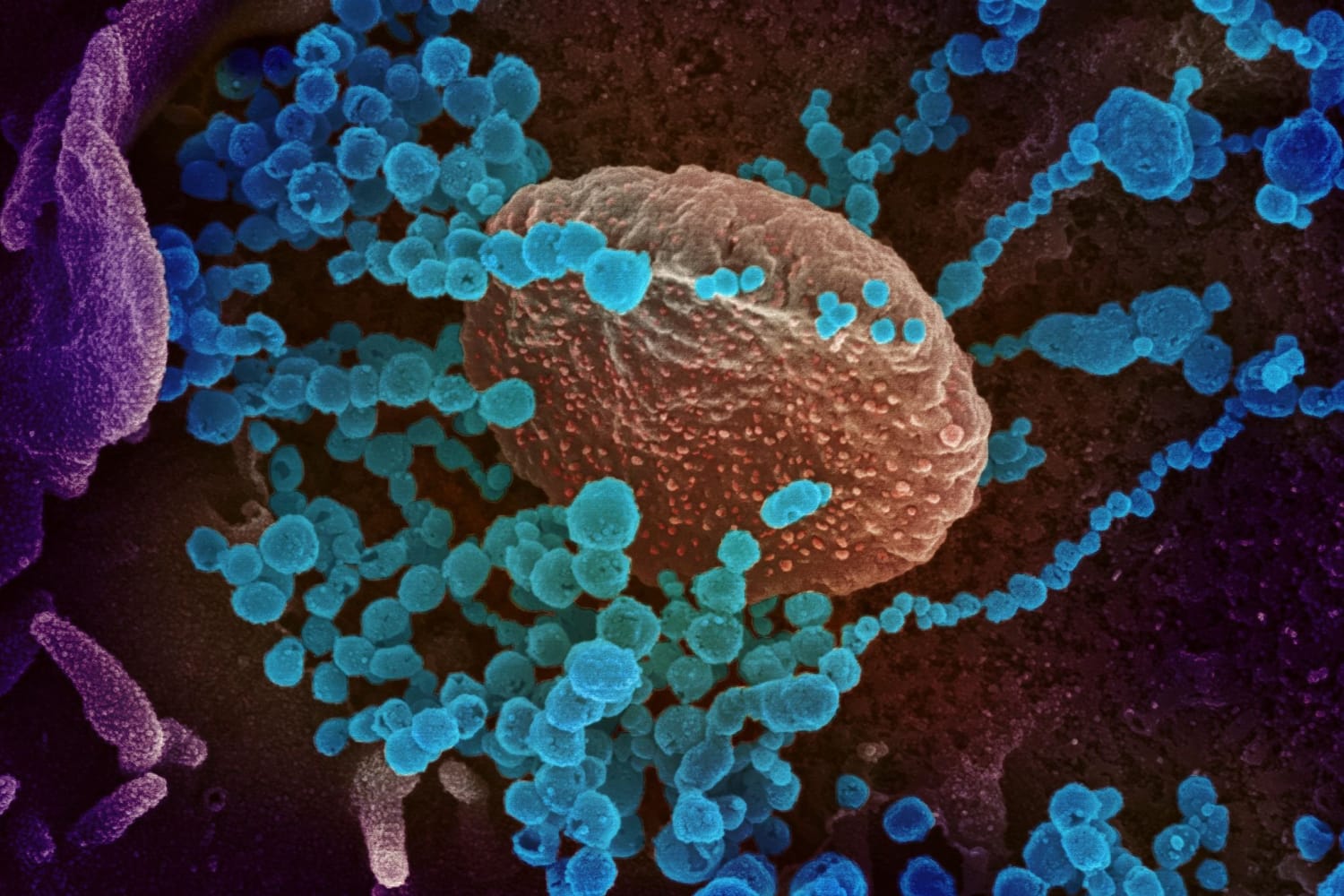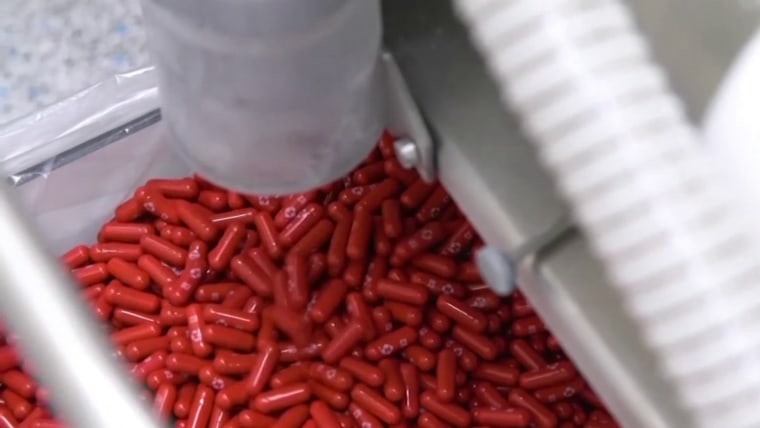Covid-19 may soon be treatable with a pill.
In the past six weeks, two drugmakers have announced promising clinical trial results for their experimental oral antiviral pills and will soon have their data evaluated by the Food and Drug Administration.
The first drug comes from Merck, which collaborated with Ridgeback Biotherapeutics on a medication called molnupiravir, an antiviral originally developed to treat flu viruses. An FDA advisory committee is set to meet Nov. 30 to discuss the companies’ request for emergency use authorization. And last week, Pfizer announced the results of its clinical trial of the antiviral Paxlovid and said it would submit its data to the FDA in the coming weeks.
Molnupiravir and Paxlovid, which are designed to be administered as pills, have proven to be remarkably successful in placebo-controlled clinical trials in preventing hospitalization and death due to Covid-19. Experts are hopeful that authorization of the drugs will be a major step toward ending the Covid-19 pandemic.
So how do the antiviral drugs work?
The coronavirus wreaks havoc on the body by inserting itself into cells and hijacking their machinery to make copies of itself. The copies then burst out of the cells and invade other cells, spreading through the body.
Full coverage of the Covid-19 pandemic
Molnupiravir and Paxlovid both aim to stop the coronavirus from replicating, but they use slightly different methods.
Molnupiravir, a type of antiviral drug called a polymerase inhibitor, works by stopping the virus’s genetic material from being replicated accurately. It fools the enzyme (called a polymerase) responsible for replicating the virus’s RNA so that it inserts errors, or mutations. The mutations then get replicated over and over, until there are so many mutations that the virus can no longer survive.
The so-called error catastrophe method is effective, said Katherine Seley-Radtke, a medical chemist at the University of Maryland, Baltimore County, who specializes in antiviral drug development.
But “it’s also a little bit risky, because it could also hit human host enzymes, as well,” she said. Some research suggests that drugs similar to molnupiravir can have effects on other enzymes in the body when they are given for longer periods of time (molnupiravir is taken for five days). “But it still causes concerns,” she added.
Pfizer’s drug, Paxlovid, takes a different approach.
The drug consists of two components: an experimental molecule called PF-07321332 and an existing drug called ritonavir. Both are protease inhibitors, which means they block a different enzyme (called a protease) that cuts apart long strands of nonfunctional viral proteins into smaller, functional proteins. PF-07321332 is the star of the show in the drug duo, working on the virus itself, while ritonavir stops other enzymes from destroying PF-07321332. Ritonavir plays the same defensive role in antiviral drug cocktails that treat HIV.
For both drugs, starting treatment early is important. In the clinical trials, Merck and Pfizer started the treatments within five days of symptoms’ starting.
“These drugs can be administered at any stage of the infection based on their mode of action,” said Fenyong Liu, a virologist at the University of California, Berkeley. However, they will be more effective if they are given in the early stages of the infection, he added, “because more severe complications and damage due to infection are always associated with later stages.”
That’s because the longer the virus has to make more copies of itself, the more it’s going to spread and cause problems, Seley-Radtke said. If the virus is stopped early, the consequences will be less severe, she said.
The clinical trials for both treatments reported no unfavorable side effects that were any different from those of the placebo, which experts say is promising.
While there is likely to be room to improve the drugs, Liu said, “I think they are really the best we can do at this moment.” Both were initially developed for other purposes but have been repurposed for Covid-19 because of the urgency, he said. The potency and safety profile of the treatments are likely to improve because there will be second and third generations of the drugs made by introducing slight modifications to their chemical compositions, he said.
Download the NBC News app for full coverage of the Covid-19 pandemic
Seley-Radtke is hopeful that the drugs are as safe as the companies suggest, too, but she noted that Pfizer hasn’t released a lot of data about its new drug, making it hard to confirm its safety at this point.
A major advantage the new drugs have over existing Covid-19 drugs is that they come in pill form, rather than as intravenous drugs. The antiviral drug remdesivir, for example, is a polymerase inhibitor that works similarly to molnupiravir, and it has been shown to be effective against Covid-19, but it can be administered only by IV. Remdesivir, which the FDA approved in October 2020, is used to treat hospitalized patients.
Drugs for Covid-19 treatment have to be considered for use globally, Liu said, and an IV drug isn’t practical in many parts of the world. “The availability of the treatment is very, very important, as important as the efficacy of the drug itself,” he said.
And hopefully, Covid-19 drugs in the form of pills will not only help cure people, but also stop the spread of the virus. “About 80 percent of the people [with Covid-19] don’t need to go to the hospital,” Seley-Radtke said. “They could be treated very early on and shut that virus down immediately,” preventing it from spreading even further. “That’s going to be huge.”
Follow NBC HEALTH on Twitter & Facebook.
Source: | This article originally belongs to Nbcnews.com












